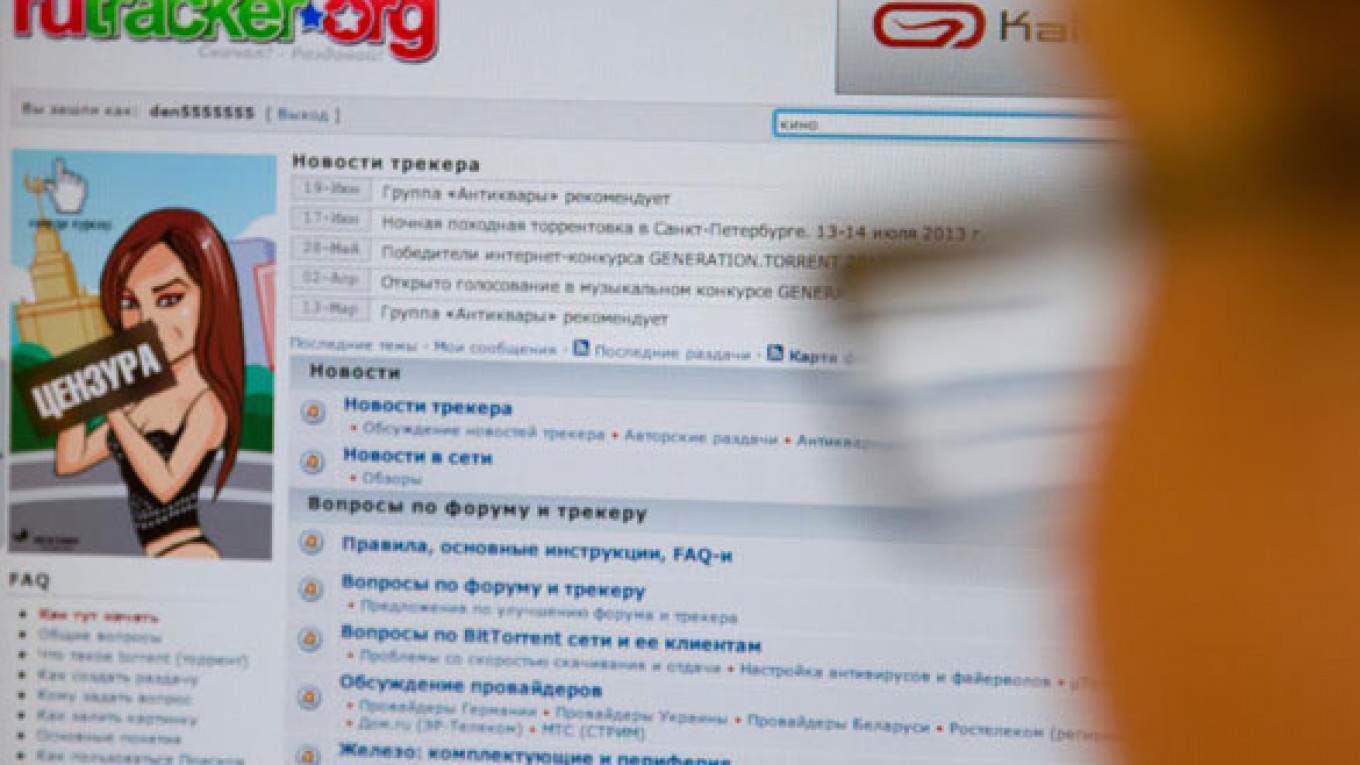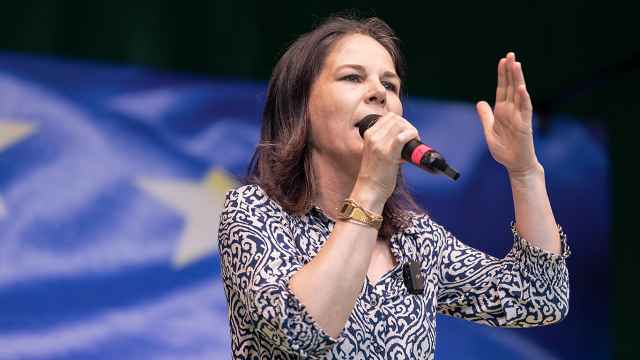A law curtailing illegal distribution of video content online may soon be extended to all intellectual property, to the relief of industry associations hoping their sectors will see the same benefits the law is bringing to film and television.
Piracy is, by all accounts, a deeply entrenched problem in Russia that has wreaked particular havoc on the domestic film, music and publishing industries over the past decade.
The music industry loses about $700 million a year to illegal distribution, said Leonid Agronov, head of the National Federation of the Music Industry, or NFMI. The figure is necessarily approximate since content-pirating sites, not paying taxes, do not submit statistics to the government, he added.
The situation is especially catastrophic for Russian performers, he said: "While a Western artist loses 5 to 7 percent of their royalties to the RuNet, a Russian artist loses 95 percent."
Amendments submitted Monday to the State Duma by deputy speaker Sergei Zheleznyak would extend coverage of an earlier anti-piracy law to "all information containing objects of copyright and allied rights," Vedomosti reported, citing a copy of the amendments.
In practice, this will mean that any copyright holder can do as film and television companies have done since the law went into effect in August 2013. Upon discovering that their content has been illegally distributed, the copyright holder can appeal to the Moscow City Court for an interim block on the content, after which they have 15 days to file a lawsuit against the individual or organization that uploaded the content without permission.
The anti-piracy law has already shown promising results for the television and film industries, Agronov said.
The deputy head of the Consumer Protection Agency, which is charged with enforcing the law, said earlier this month that traffic on legal video sites has increased by 40 percent and advertising profits on these sites by 25 percent since the law went into effect.
Meanwhile, the number of people paying for legal online content rose by 30 percent in late 2013, Communications and Press Minister Nikolai Nikiforov said in January, Itar-Tass reported.
The industry is also learning to leverage the new legislation. Four distribution and production companies jointly filed claims against the site intv.ru in early February, marking the first collective law suit ever filed by copyright holders against an Internet company, a Consumer Protection Service spokesman said.
These preliminary successes, as well as the results that other countries have seen with similar legislation, suggests that the law could help with software piracy too, said Nikolai Komlev, executive director of the Association of Computer and Information Technologies, or APKIT.
Software has suffered along with the music industry — between 65 and 70 percent of software downloaded in Russia is obtained illegally, Komlev said.
"According to the Nonprofit Partnership of Software Suppliers, the traditional computer game industry has practically been killed by piracy," he added.
While optimistic about the legislation, Komlev said that problems could emerge during execution due to a lack of "adequate regulation."
Both APKIT and NFMI participated with lawmakers in developing the legislation, Komlev and Agronov said.
Publishing houses are also favorable towards the amendments, said Oleg Novikov, vice president of the Russian Book Union, whose members account for about 80 percent of the country's book publishing market.
"We as publishers have long maintained that books should be included in the anti-piracy law. For us it is a very important problem — in essence the question of the sector's survival," Novikov told Vedomosti.
The current version of the anti-piracy law has drawn heavy criticism from Internet users as well as major companies such as Google Russia, Yandex and Mail.Ru Group.
Critics said that the law, which requires entire IP addresses to be blocked if the provider is technically unable to block a single website, could lead to innocent sites being shut down simply because they share an IP address with a copyright violator.
The proposed amendments, which bring all intellectual property together under one blanket set of procedures, are also garnering criticism.
Software piracy differs from that of films or music, and combating it involves "a series of specific issues," said Valentin Makarov, president of the Russoft software developers association.
"For this reason, I would not want to see the measures for protecting software lumped together with those for protecting other, more vulnerable areas of creative activity," Makarov said.
Contact the author at d.damora@imedia.ru
A Message from The Moscow Times:
Dear readers,
We are facing unprecedented challenges. Russia's Prosecutor General's Office has designated The Moscow Times as an "undesirable" organization, criminalizing our work and putting our staff at risk of prosecution. This follows our earlier unjust labeling as a "foreign agent."
These actions are direct attempts to silence independent journalism in Russia. The authorities claim our work "discredits the decisions of the Russian leadership." We see things differently: we strive to provide accurate, unbiased reporting on Russia.
We, the journalists of The Moscow Times, refuse to be silenced. But to continue our work, we need your help.
Your support, no matter how small, makes a world of difference. If you can, please support us monthly starting from just $2. It's quick to set up, and every contribution makes a significant impact.
By supporting The Moscow Times, you're defending open, independent journalism in the face of repression. Thank you for standing with us.
Remind me later.






